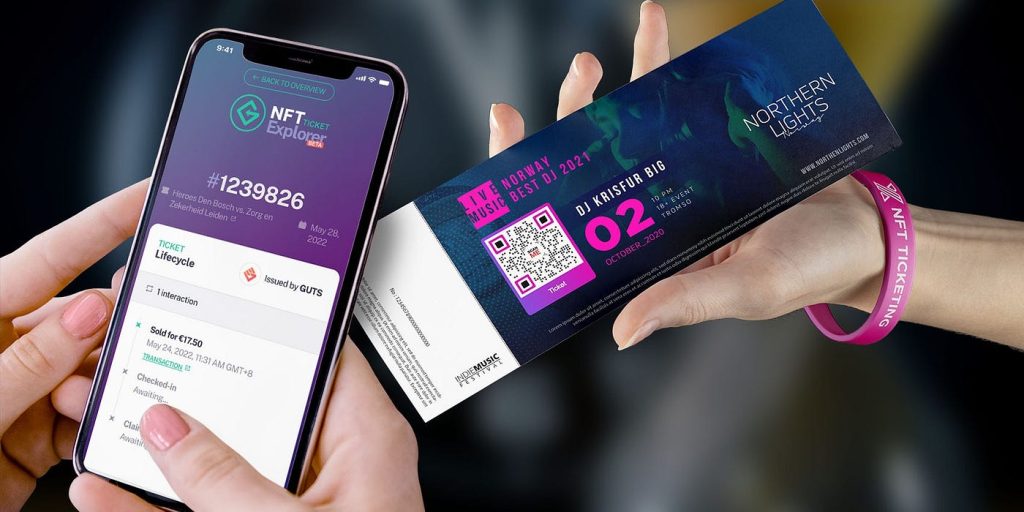The old paper ticket is quickly being supplanted by its digital equivalent in an increasingly digital world, bringing in the age of mobile ticketing. Mobile tickets are convenient, flexible, and environmentally friendly for everything from movies and athletic events to concerts and public transportation. But this shift also presents a unique set of difficulties and factors to take into account. Through the resolution of these issues and the utilization of the benefits associated with mobile ticketing, tickets helper seeks to offer customers a smooth and satisfying ticketing experience.
Benefits of Mobile Tickets
1. Convenience and Accessibility:
The ease with which customers may utilize mobile ticketing is one of its main advantages. Participants don’t have to bother about printing or carrying real tickets anymore because they can save them immediately on their cellphones. With this simplified procedure, there is no chance of tickets being misplaced or forgotten, making it simple to attend events whenever and from any location with an online connection.
2. Instant Delivery and Real-Time Updates
Upon purchase, mobile ticketing allows for instant ticket delivery, doing away with the requirement for shipping or physical delivery. Additionally, event administrators have the ability to instantly send notifications and updates—such as changes to the venue, schedule modifications, or seat upgrades—to attendees’ smartphones. This effective communication lowers the possibility of misunderstandings and improves the overall experience for attendees.
3. Enhanced Security and Fraud Prevention
Compared to traditional paper tickets, digital tickets are intrinsically more safe because they include cutting-edge security features like barcodes, QR codes, and encryption algorithms. These integrated security features aid in preventing unauthorized entry to events, ticket fraud, and counterfeit tickets. To further improve security and accountability, mobile ticketing solutions frequently include identity verification and ticket transfer features.
4. Environmental Sustainability
Mobile ticketing helps to promote environmental sustainability by decreasing paper waste and carbon emissions related to printing, transportation, and disposal by doing away with the requirement for paper tickets. This environmentally friendly strategy supports international initiatives to reduce environmental effect and encourage sustainable business practices. Customers can help save natural resources and lessen their carbon footprint by choosing digital tickets.
5. Integration with Mobile Wallets and Apps
Attendees may have a unified digital experience with mobile tickets that effortlessly interface with mobile wallets and event apps. Users may consolidate all of their digital goods in one handy area by storing their tickets with other necessary digital assets like credit cards, boarding passes, and loyalty cards. Long-lasting relationships between attendees and event organizers are fostered by this integration, which increases user engagement and loyalty.
Disadvantages of Mobile Tickets
1. Technological Barriers and Compatibility Issues
Although mobile ticketing has many advantages, some populations may find it incompatible with newer technologies. Not all customers own smartphones or are technologically savvy enough to use mobile ticketing services efficiently. Furthermore, some users’ access may be restricted by compatibility problems with outdated smartphone models or operating systems.
2. Dependency on Battery Life and Connectivity
The operation of mobile ticketing is mostly dependent on the battery life of smartphones and internet connectivity, which might present difficulties in places with restricted access to power sources or Wi-Fi networks. If a participant’s smartphone runs out of battery life or loses network connectivity, they run the danger of not being able to access their tickets or receive vital information. In order to guarantee a flawless experience for every guest, event planners need to take these things into consideration and offer substitute options.
3. Data Security and Privacy Issues
Concerns surrounding data security and privacy are brought up by the increasing use of mobile ticketing, especially with relation to the gathering and archiving of personal data. Users could be reluctant to provide sensitive information to ticketing services, such as location data, payment information, or contact details. Ticketing companies need to provide transparency in their privacy policies and data protection measures top priority in order to allay these worries.
4. Potential for Ticket Transfer and Scalping
Although mobile ticketing improves security and cuts down on fraud, it also raises issues with scalping and ticket transferability. There are several ticketing platforms that prohibit ticket transfers and resale, making it more difficult for attendees to give their tickets to friends or resell them on secondary markets. For mobile ticketing companies, striking a balance between customer flexibility and security requirements is still a major challenge.
5. User Experience and Interface Design
Customers’ accessibility and convenience of use can be greatly impacted by the differences in the user experience and interface design of mobile ticketing platforms. The adoption of mobile ticketing might be impeded by poorly designed interfaces, intricate navigation, or unclear instructions, which can lead to user frustration. Ticketing companies should place a high priority on user-centric experiences and intuitive design concepts in order to address these problems.
To sum up
The emergence of mobile ticketing signifies a noteworthy transformation in the way customers view and interact with events in the digital era. Unquestionably, mobile ticketing has advantages in terms of sustainability, security, and convenience. However, there are drawbacks as well, including issues with privacy, technology, and user experience. Mobile ticketing will surely be a major factor in determining how people will be able to access and participate in events in the future as the digital landscape continues to change.

